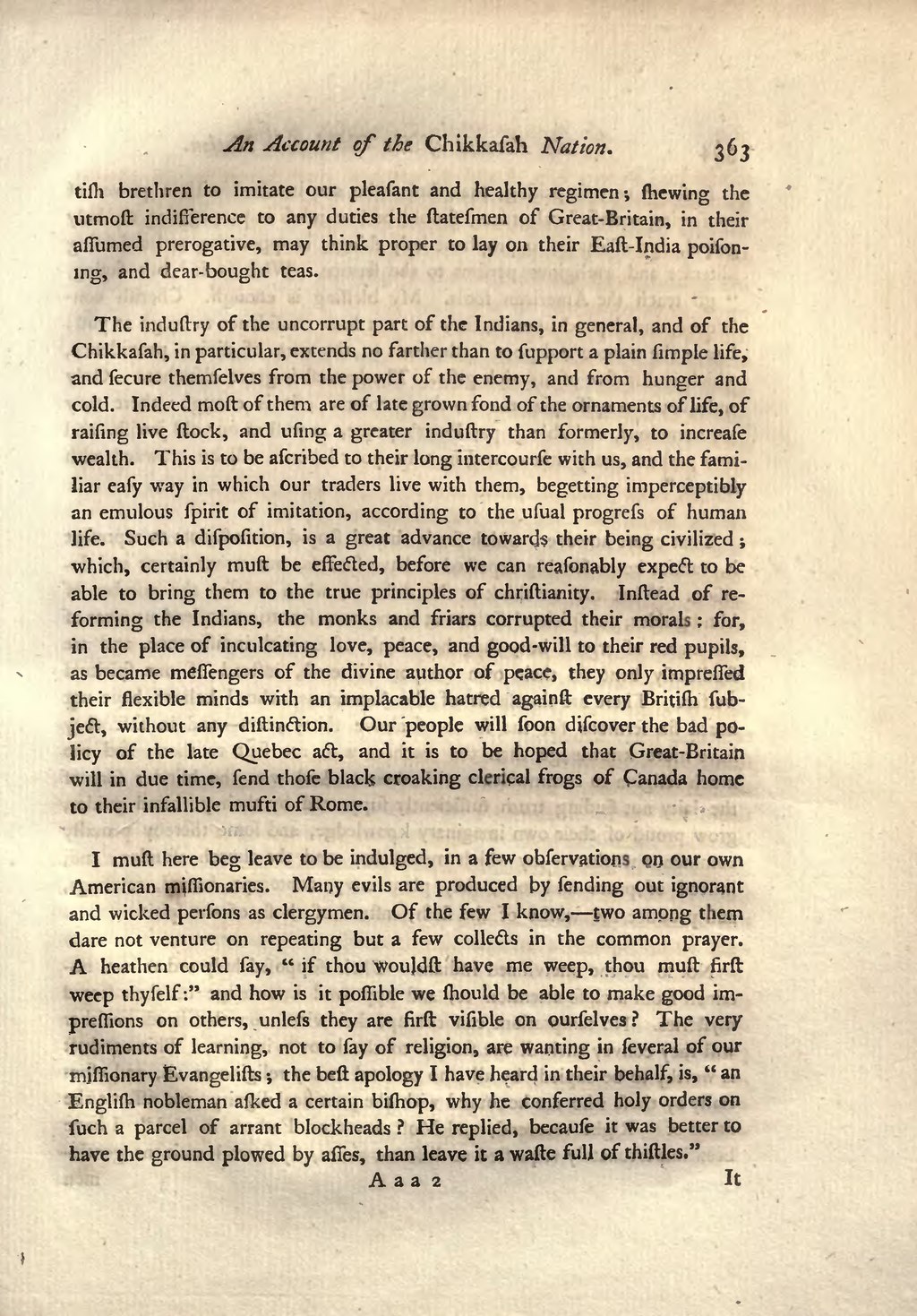An Account of the Chikkafah Nation. 363
tifh brethren to imitate our pleafant and healthy regimen-, (hewing the ntmoft indifference to any duties the ftatefmen of Great-Britain, in their aflumed prerogative, may think proper to lay on their Eaft-India poifon- ing, and dear-bought teas.
The induftry of the uncorrupt part of the Indians, in general, and of the Chikkafah, in particular, extends no farther than to fupport a plain fimple life, and fecure themfelves from the power of the enemy, and from hunger and cold. Indeed mod of them are of late grown fond of the ornaments of life, of raifing live flock, and ufing a greater induftry than formerly, to increafe wealth. This is to be afcribed to their long intercourfe with us, and the fami liar eafy way in which our traders live with them, begetting imperceptibly an emulous fpirit of imitation, according to the ufual progrefs of human life. Such a difpofition, is a great advance towards their being civilized ; which, certainly muft be effected, before we can reafonably expect to be able to bring them to the true principles of chriftianity. Inftead of re forming the Indians, the monks and friars corrupted their morals : for, in the place of inculcating love, peace, and good-will to their red pupils, as became meflengers of the divine author of peace, they only imprefled their flexible minds with an implacable hatred againft every Britifh fub- ject, without any diftinction. Our people will foon difcover the bad po licy of the late Quebec act, and it is to be hoped that Great-Britain will in due time, fend thofe black croaking clerical frogs of Canada home to their infallible mufti of Rome.
I muft here beg leave to be indulged, in a few obfervations on our own American miffionaries. Many evils are produced by fending out ignorant and wicked perfons as clergymen. Of the few I know, two among them dare not venture on repeating but a few collects in the common prayer. A heathen could lay, " if thou wouldft have me weep, thou muft firft weep thyfelf :" and how is it poflible we mould be able to make good im- preflions on others, unlefs they are firft vifible on ourfelves ? The very rudiments of learning, not to fay of religion, are wanting in feveral of our miflionary Evangelifts , the beft apology I have heard in their behalf, is, " an Englim nobleman afked a certain bifhop, why he conferred holy orders on fuch a parcel of arrant blockheads ? He replied, becaufe it was better to have the ground plowed by afies, than leave it a wafte full of thiftles."
A a a 2 It
�� �
